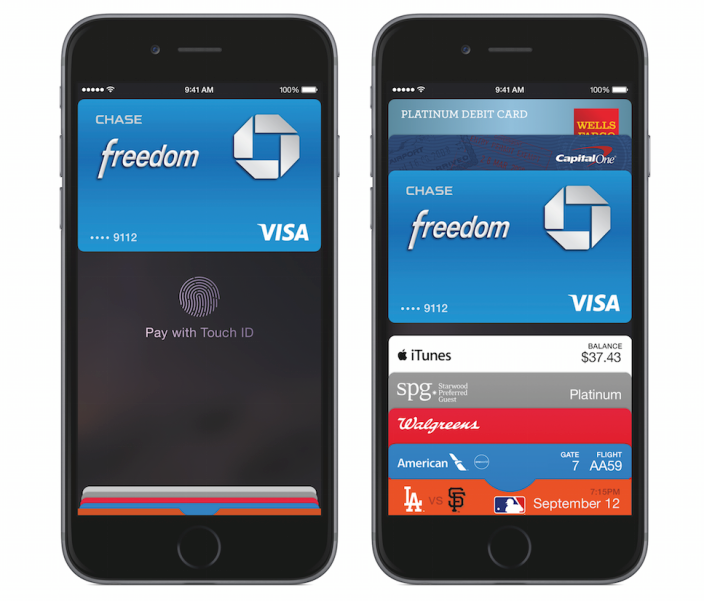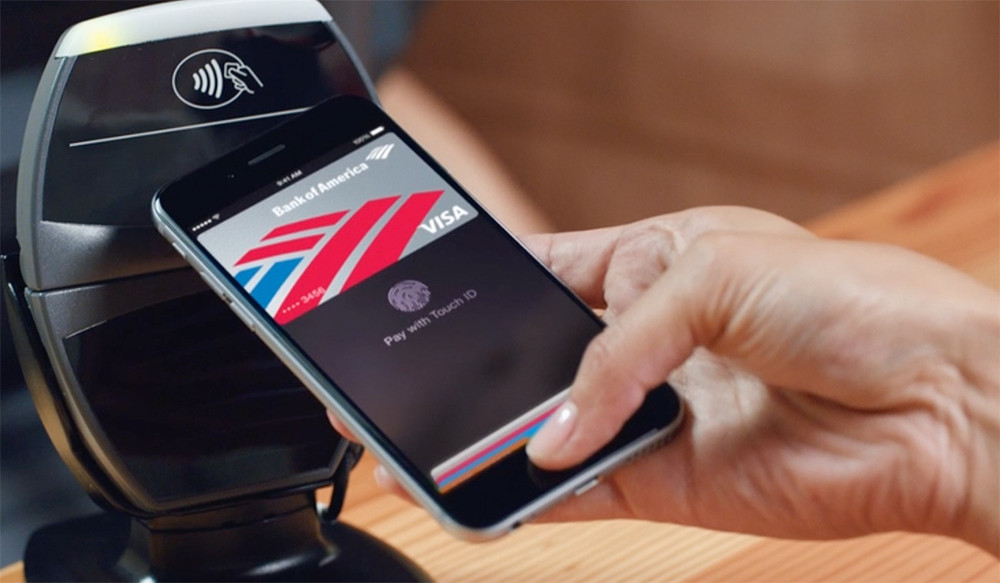Mit Apple Pay steigt Apple erstmals in den hart umkämpften aber gewinnträchtigen Finanzmarkt ein. Via NFC und TouchID Authorisation ist es zukünftig möglich mit dem iPhone 6, iPhone 6 Plus, sowie der Apple Watch zu bezahlen.
Wie nun bekannt wurde, dürfte Apple Pay dem Konzern aus Cupertino, CA tatsächlich einiges an Geld in die Kassen spülen. 0,15% von jeder Transaktion sollen an Apple fliesen…
0,15 Prozent klingen auf den ersten Blick nicht viel. Bedenkt man, dass es sich dabei um 15 Cent pro 100 Euro Umsatz handelt und wir von Umsätzen im Milliardenbereich sprechen, wird schnell klar, dass Apple hier hohe Gewinne einfahren könnte.
Zumal Konkurrenten wie Google keine solchen Umsatzbeteiligungen erhalten.
Im Alltag bedeutet dies, dass ihr bequem per iPhone 6 bezahlt, statt dem Pin euren Kauf per TouchID Fingerabdruck bestätigt und somit Apple 0,15 Prozent eures ausgegebenen Geldes zusätzlich am Apple abgebt. Cashcow? Dürfte es wohl treffen.
„Bank chief executives fawned about the “exceptional customer experience” and the “exciting move”. They are also paying hard cash for the privilege of being involved: 15 cents of a $100 purchase will go to the iPhone maker, according to two people familiar with the terms of the agreement, which are not public. That is an unprecedented deal, giving Apple a share of the payments' economics that rivals such as Google do not get for their services.“
Die Info der The Financial Times ist alles andere als neu. Bereits vor einigen Woche berichtete die Bank Innovation, dass Apple gleich zu Beginn der Verhandlungen mit den großen Kreditkarten Instituten American Express, Bank of America, Capital One, Citigroup und JP Morgan Chase die Transaktionsgebühr angebracht hat. „The first thing Apple has done is convince these four FIs to consider transactions from Apple's upcoming payments venture — said to launch with its forthcoming iPhone 6 introduction — as “card present” transactions, which carry a lower discount rate than “card not present” transactions, because of lower fraud risk.“
Apple weiß also, wie man aus einem Geschäft nochmals ein Geschäft macht. Und dass sich die großen Banken einem Elektronikkonzern beugen zeigt weiters, wie viel Mcht Apple inzwischen hat. Durchaus eine Aussage, die zu einem kritischen Blick anregen sollte.

